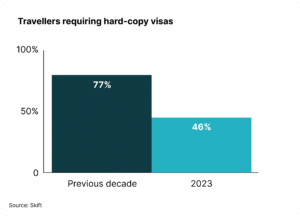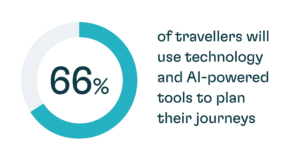
While automated systems enhance the quick and secure movement of passengers relying on facial recognition and biometric data, growing dependence on AI and technology exposes the travel industry to new vulnerabilities that could have large-scale negative impacts, as evidenced by the global IT outage caused by Crowstrike software that affected Microsoft Windows devices and the UK’s e-gates, causing significant delays in May of this year. Computer outages affecting individual airlines also continue to impact travel planning, as carriers move to upgrade ageing systems and integrate new functions to improve customer satisfaction.

AI-driven technology in travel planning is expected to advance further and integrate into all aspects of the travel experience. Data from 2024 already showed 66 percent of travellers will use technology and AI-powered tools to plan their journeys, benefiting from technology which can help find alternative travel itineraries. These innovations include major advancements in personalising itineraries, finding good cost-saving options and minimising travel time to maximise sightseeing.
Despite AI’s significant benefits, one of the challenges of the travel industry in 2025 will remain balancing innovation with resilience to prevent critical failures in the future.
